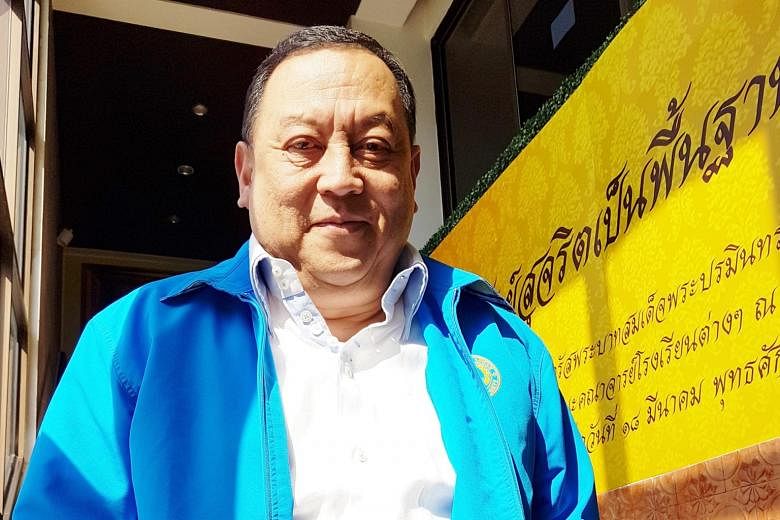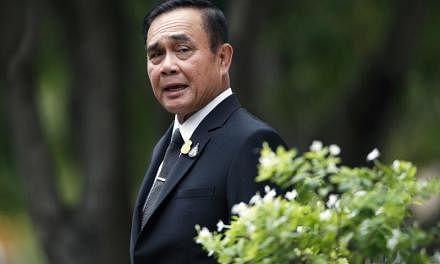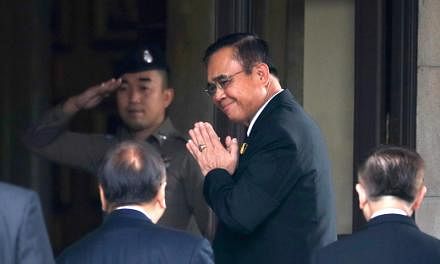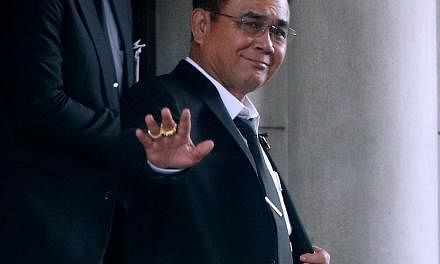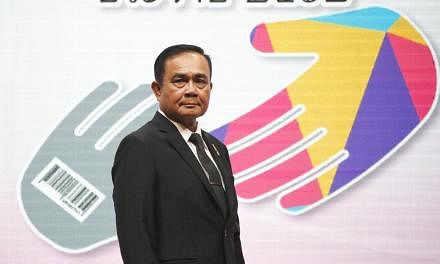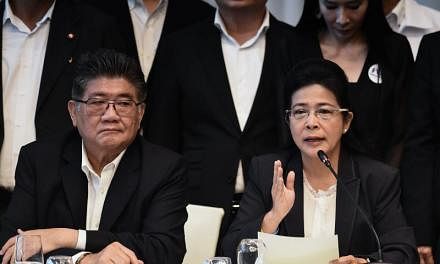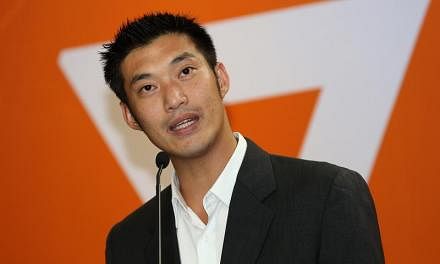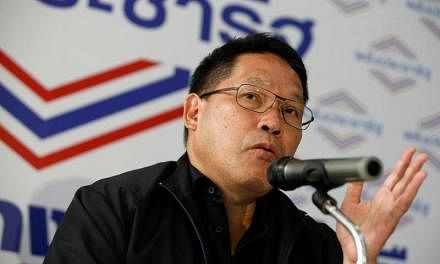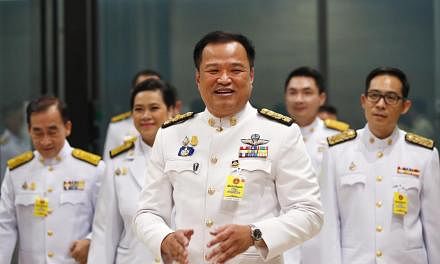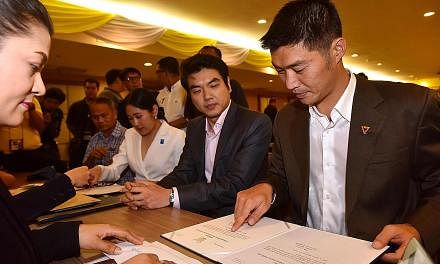BANGKOK - With two weeks to go before Thailand's general election, the country's oldest political party has faced up to an uncomfortable realisation: Young, first-time voters are writing them off.
The Democrat Party, a runner-up in the 2011 election, is targeting older voters instead to reach its goal of becoming the biggest party in parliament, secretary-general Chuti Krairiksh told The Straits Times in an interview.
Major political parties contesting the March 24 election have fallen broadly into two camps - those opposed to any extension of power for the five-year-old military government, and those likely to support a return of former army chief and current prime minster Prayut Chan-o-cha after the election.
The Democrats, however, have pitched their party as a "third alternative" between military dictatorship and what it calls corrupt politicians - leading to speculation that the party may eventually join a governing coalition backing Mr Prayut.
On Sunday (March 11), party leader Abhisit Vejjajiva stated unequivocally that he would not support the return of Mr Prayut, who staged the 2014 military coup.
In the 2011 election, the Democrats won 159 out of 500 possible Lower House seats, largely from the central and southern regions.
For this election, they have unveiled a slew of pro-welfare pledges, including one giving families of newborn babies 1,000 baht (S$42.90) a month until the child reaches eight years of age.
Yet Mr Chuti readily admitted that its policies have gained little traction, especially in the poorer north-east region, where the Democrats have traditionally fared badly.
The populous bloc, which holds the biggest chunk of constituency seats, is a stronghold of the Pheu Thai party, which headed the government ousted by the 2014 coup.
"Every party lacks the 'penetration'. If you ask a voter what's the dominant policy of Pheu Thai, of the Democrats, nobody can answer," he said. "If I ask 'who are you going to vote for in the north-east?', they say 'Pheu Thai'. Why? They say 'I've always voted like this'. It's not from policy."
The Democrats lost 21 of its strongest candidates to other parties just before this election, noted Mr Chuti. He alleged that the same parties are offering voters up to 500 baht each to secure a win.
Meanwhile, the Democrat Party is one of a handful of parties that have fielded the maximum possible number of candidates.
Pheu Thai, which splintered into several parties to try to win more seats under this new electoral system, is grappling with the loss of its sister party Thai Raksa Chart, which was dissolved by a court last week for nominating the king's sister as a prime minister candidate.
This has given the Democrats an opening.
"We plan to be the biggest single party after the election," said Mr Chuti.
As to the north-east region, he said: "We have been failing in this region for almost 25 years. I think we need a rethink, a new dimension, a fresh initiative."
Meanwhile, voters coming of age this year - they form over 10 per cent of eligible voters - are also proving difficult for the Democrats to win over.
"They are just simply not interested in us … We are perceived to be an old party," he said.
"Their attitude is like, they want to change a new phone every year. So they think they can change politicians at every election as well. And they are have no historical perspective of candidates and political parties."
This is something that he is trying to change.
The party, he reveals, is currently grooming about 40 potential candidates who are too young to run in this election.
They would be ready for contest in two to three years' time, he said.
